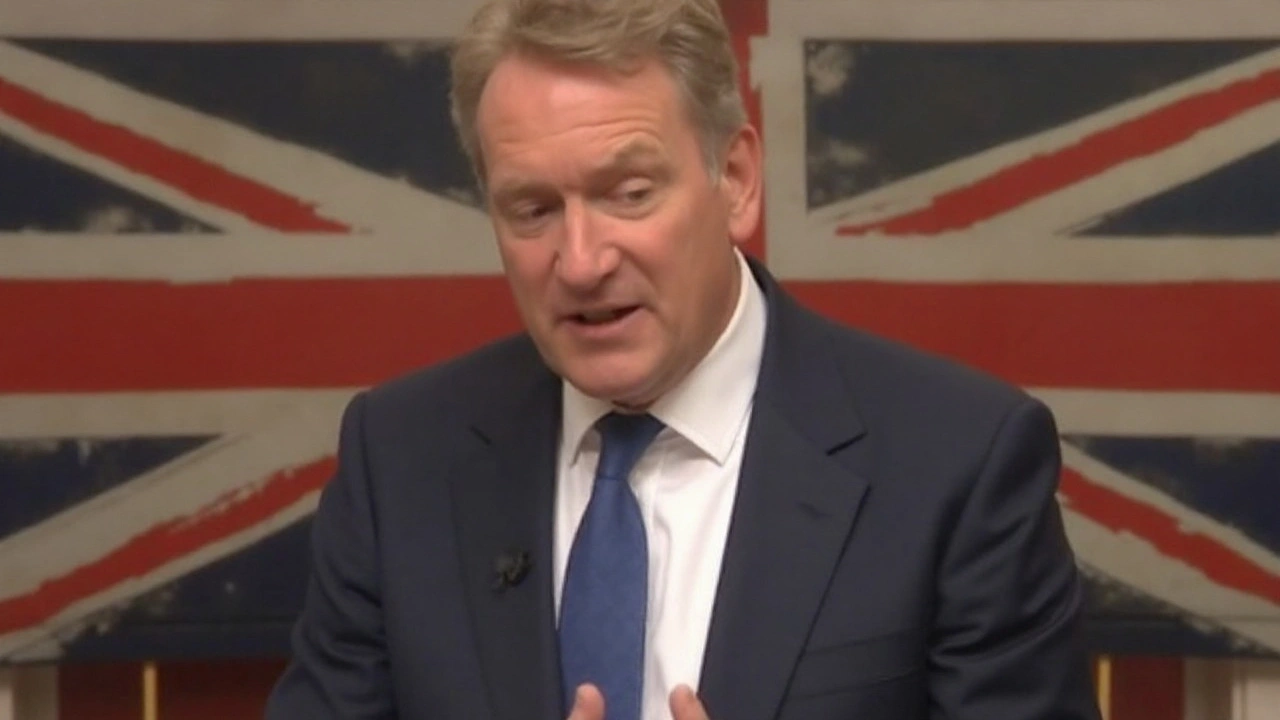A deputy prime minister has quit over a tax mistake, and within hours the prime minister ripped up his top team. Keir Starmer’s shake-up is the biggest reset of his government so far, triggered by Angela Rayner’s resignation after an investigation found she had underpaid stamp duty on a flat in Hove.
The headline moves are stark. David Lammy leaves the Foreign Office to become justice secretary and deputy prime minister, a job that puts him at the heart of domestic delivery. Yvette Cooper replaces him as foreign secretary. Shabana Mahmood takes over as home secretary. Rachel Reeves stays as chancellor. Pat McFadden is handed a new Whitehall ‘superministry’ linking work, pensions and skills. Allies call it a cabinet of fixers and doers built for a grim political fight.
This Starmer reshuffle lands as Labour’s support wobbles. Reform UK has opened up a double-digit lead in recent polling, Nigel Farage is hammering the government over small boat crossings, and protests outside migrant hotels have become a regular flashpoint. Starmer is betting that a harder, more operational lineup can steady the ship and get results fast.
Why Rayner’s fall forced a reset
Angela Rayner’s departure is the shock that set this all in motion. The prime minister’s standards adviser, Sir Laurie Magnus, found she breached the ministerial code by not paying the higher rate of stamp duty due on the Hove flat she bought in May. Rayner had paid the standard rate after taking advice that it counted as her main home, because the family house in Ashton-under-Lyne was held in a trust for her disabled son. The ruling said she should have paid more. She quit as deputy prime minister, housing secretary and deputy leader of the Labour Party.
The case blends the technical and the political. The stamp duty rules are unforgiving: if a buyer owns another dwelling—even via a trust—higher rates can kick in unless strict conditions are met. Ministers are bound by a code that expects not just compliance but judgment. Rayner insisted she followed advice at the time, but the optics were impossible to survive. Her exit cracks open Labour’s internal politics too, because the party deputy role is vacant and a contest looms. Health secretary Wes Streeting has told friends he won’t run, removing one heavyweight from the field. Starmer, by naming Lammy as deputy prime minister, has split the party and government jobs to avoid putting campaign politics inside Number 10.
The timing matters. With polls turning and immigration dominating the airwaves, Starmer needs grip. Resetting the cabinet immediately after a bruising resignation signals urgency, not drift. It also draws a line between personal accountability—Rayner’s departure—and collective delivery—new ministers tasked with making the machine work.

Who moved—and what it signals
- David Lammy: from foreign secretary to justice secretary and deputy prime minister.
- Yvette Cooper: from home secretary to foreign secretary.
- Shabana Mahmood: appointed home secretary.
- Pat McFadden: to lead a new ‘superministry’ combining Work and Pensions with skills functions from Education.
- Steve Reed: to housing secretary.
- Peter Kyle: to business secretary, with a brief to rebuild ties with business.
- Dame Diana Johnson: moved from policing minister to the Department for Work and Pensions.
- Dame Angela Eagle: becomes farming minister.
- Dan Jarvis: shifted to the Cabinet Office while continuing to liaise with the Home Office.
- Jason Stockwood: appointed investment minister and granted a life peerage.
- Ian Murray: dismissed as Scotland secretary.
- Rachel Reeves: remains as chancellor, a decision signalled early to calm markets.
Lammy’s move is the biggest statement. In November, Starmer privately assured him he would serve a full parliament at the Foreign Office. Breaking that pledge underscores how seriously Number 10 takes the domestic crunch. The Ministry of Justice is where several crises collide: a courts backlog, prison capacity at breaking point, and sentencing reforms that all demand political muscle. As deputy prime minister, Lammy becomes Starmer’s relay runner inside Whitehall, pushing delivery across departments and fronting the government at the despatch box when needed.
The Home Office gets a thorough reboot. Shabana Mahmood inherits a department defined by the small boats challenge, asylum casework delays and tensions with local communities over accommodation sites. Expect a focus on operational throughput—more caseworkers, faster returns, tighter enforcement—paired with attempts to cool flashpoints outside migrant hotels. Moving Dan Jarvis into the Cabinet Office to keep a hand on security and coordination suggests Starmer wants daily oversight from the centre rather than leaving the Home Office to run alone.
Sending Yvette Cooper to the Foreign Office is a calculated swap. Cooper’s years at the Home Office and on security committees give her a law-and-order lens she will now take into foreign policy: migration pacts, security partnerships, sanctions and state threats. She is not a stranger to the diplomatic circuit and is likely to prioritise Europe-adjacent files where security and migration intersect, while keeping Washington and NATO close. The message is continuity on alliances, toughness on security and fewer public rows about process.
Pat McFadden’s new ‘superministry’ is the structural bet of this reshuffle. Combining welfare with skills is meant to connect three problems—low productivity, worker shortages and long-term sickness—into one strategy. In theory, the department can push claimants into training that actually matches vacancies and help employers fill roles without permanently importing labour. In practice, merging remits risks turf wars and data headaches. McFadden, a trusted operator who has run the engine room for Starmer, is being asked to turn Whitehall plumbing into a growth plan.
On housing, Steve Reed gets a blunt brief: build, build, build. The politics here is unforgiving. Voters want more homes and lower rents; local backbenchers and councils dislike dense development; environmental groups resist sprawl. Reed’s success will hinge on planning reform that speeds up decisions, unlocks land and protects standards without grinding to a halt. If he can push through a national framework that gives certainty to developers and communities, he will have the government’s most concrete win—literally.
Peter Kyle’s appointment to business secretary is about mending fences. The government has upset company bosses with higher employer national insurance contributions and new workers’ rights legislation that some firms see as costly. Kyle has been told to rebuild trust and predictability. That likely means more consultation, clearer timetables for regulation and a steadier tone on tax. Markets also got the reassurance they wanted: Rachel Reeves is staying put, a message briefed early in the day to avoid any hint of fiscal wobble.
Jason Stockwood’s arrival as investment minister, alongside a life peerage, points to another flank of the strategy: bringing in an operator from the private sector with regional credibility. As Grimsby Town’s chair and a tech-focused businessman, he bridges the world of start-ups and towns that feel left behind. His task will be to turn goodwill into capital—landing projects outside London and smoothing investors’ path through planning and permits.
There are costs to a reshuffle this sweeping. Experience is shunted midstream, teams are broken up, and agendas are restarted. Moving Dame Diana Johnson out of policing and Dame Angela Eagle into farming signals fresh eyes on crime and rural policy, but it also means new ministers must climb steep learning curves. The Home Office, infamous for outlasting its political masters, now has another handover to absorb.
Then there is Scotland. Ian Murray’s dismissal as Scotland secretary opens a question about the government’s approach north of the border. Resetting personnel hints at a rethink on how to handle the SNP at Westminster and the economic message in Scotland’s central belt. Without signalling a successor yet, Number 10 is keeping options open on tone and tactics.
The bigger political backdrop is stark. Reform UK’s 10-point advantage in some polls shows how quickly voter patience can snap when migration and crime dominate. Farage has framed the government as unable to stop small boat crossings or assert control. Starmer’s answer is performance politics: get the systems moving, loudly. That explains why the Cabinet Office now pulls security coordination closer and why the Home Office has a leader who is known for operational focus rather than grandstanding.
For Labour, the internal balancing act returns. Rayner’s resignation wipes out a rival power centre and triggers a deputy leadership contest that will churn the party for weeks. By splitting the government deputy role from the party deputy role, Starmer is trying to firewall governing from campaigning. It’s a recognition that a loud internal race, set against tricky polls, can distract a government that needs discipline.
What should we expect next? A series of early statements and decisions designed to show grip: measurable targets for asylum casework, visible progress on court backlogs, a timetable for planning reform, and a skills plan that businesses can use. In the Foreign Office, Cooper will move quickly to lock in cooperation on migration and security, while maintaining a steady line with allies on Ukraine and the Middle East. At the Treasury, Reeves will treat stability as the product, resisting any hint of a fiscal surprise.
There is a clear through-line to all of this: Starmer wants ministers who will spend less time on speeches and more time unblocking systems. He has paid a price—breaking a promise to a senior ally, absorbing a damaging resignation and inviting a wave of “panic reshuffle” headlines. But he has also shown he will reroute around political potholes if he thinks delivery is at risk.
Cabinet resets don’t win arguments on their own. They buy time and create chances. If small boat arrivals fall, if court backlogs shrink, if cranes go up on new housing sites and if businesses feel heard, this week will look like a turning point. If not, the government will have burned political capital and energy at the moment it could least afford it.

